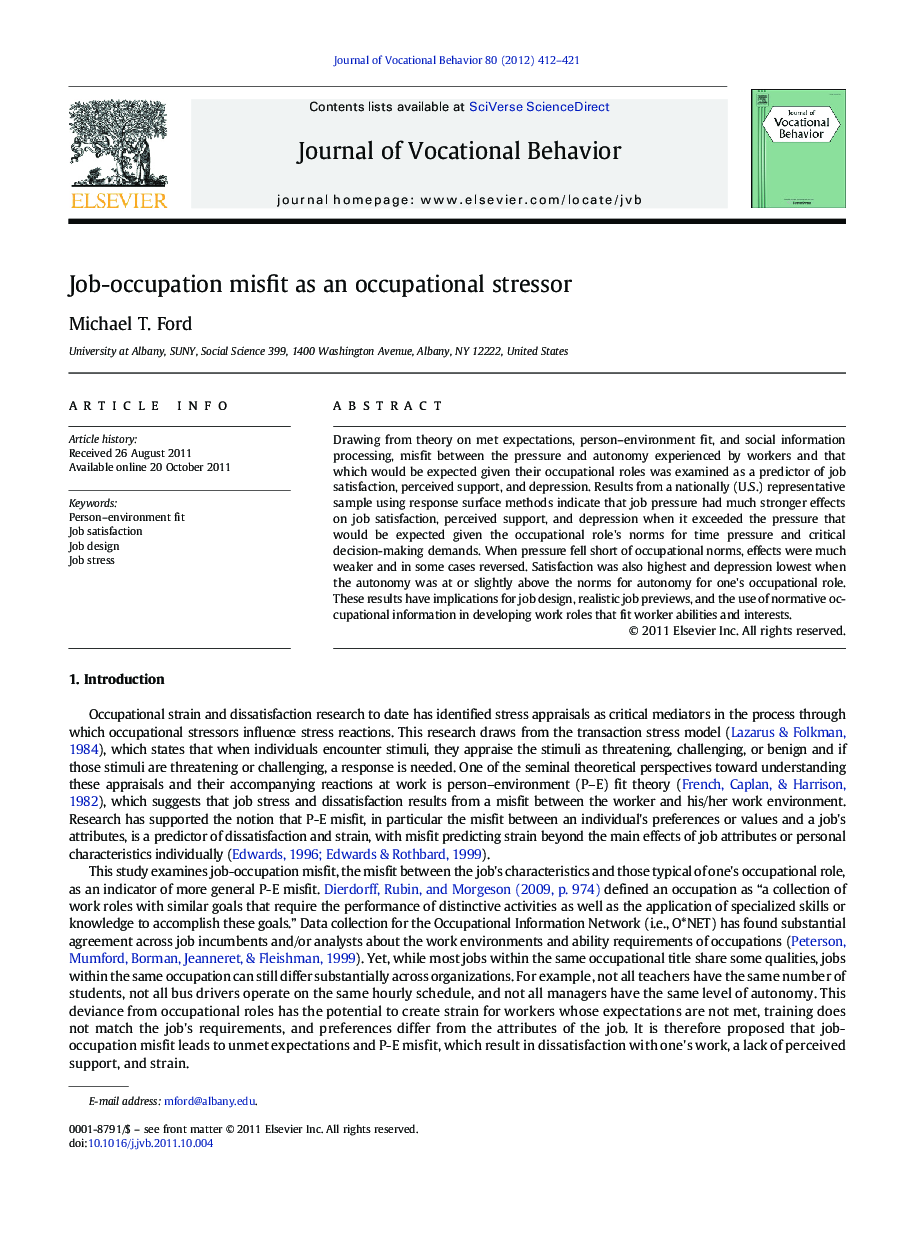| Article ID | Journal | Published Year | Pages | File Type |
|---|---|---|---|---|
| 887084 | Journal of Vocational Behavior | 2012 | 10 Pages |
Drawing from theory on met expectations, person–environment fit, and social information processing, misfit between the pressure and autonomy experienced by workers and that which would be expected given their occupational roles was examined as a predictor of job satisfaction, perceived support, and depression. Results from a nationally (U.S.) representative sample using response surface methods indicate that job pressure had much stronger effects on job satisfaction, perceived support, and depression when it exceeded the pressure that would be expected given the occupational role's norms for time pressure and critical decision-making demands. When pressure fell short of occupational norms, effects were much weaker and in some cases reversed. Satisfaction was also highest and depression lowest when the autonomy was at or slightly above the norms for autonomy for one's occupational role. These results have implications for job design, realistic job previews, and the use of normative occupational information in developing work roles that fit worker abilities and interests.
►Job–occupation misfit was tested using self-reported job characteristics and O*NET ratings for equivalent occupations. ►Congruence between job and occupational norms predicted satisfaction, perceived support, and depression. ►Results indicate that worker adjustment is optimal when job characteristics do not substantially deviate from occupational norms.
